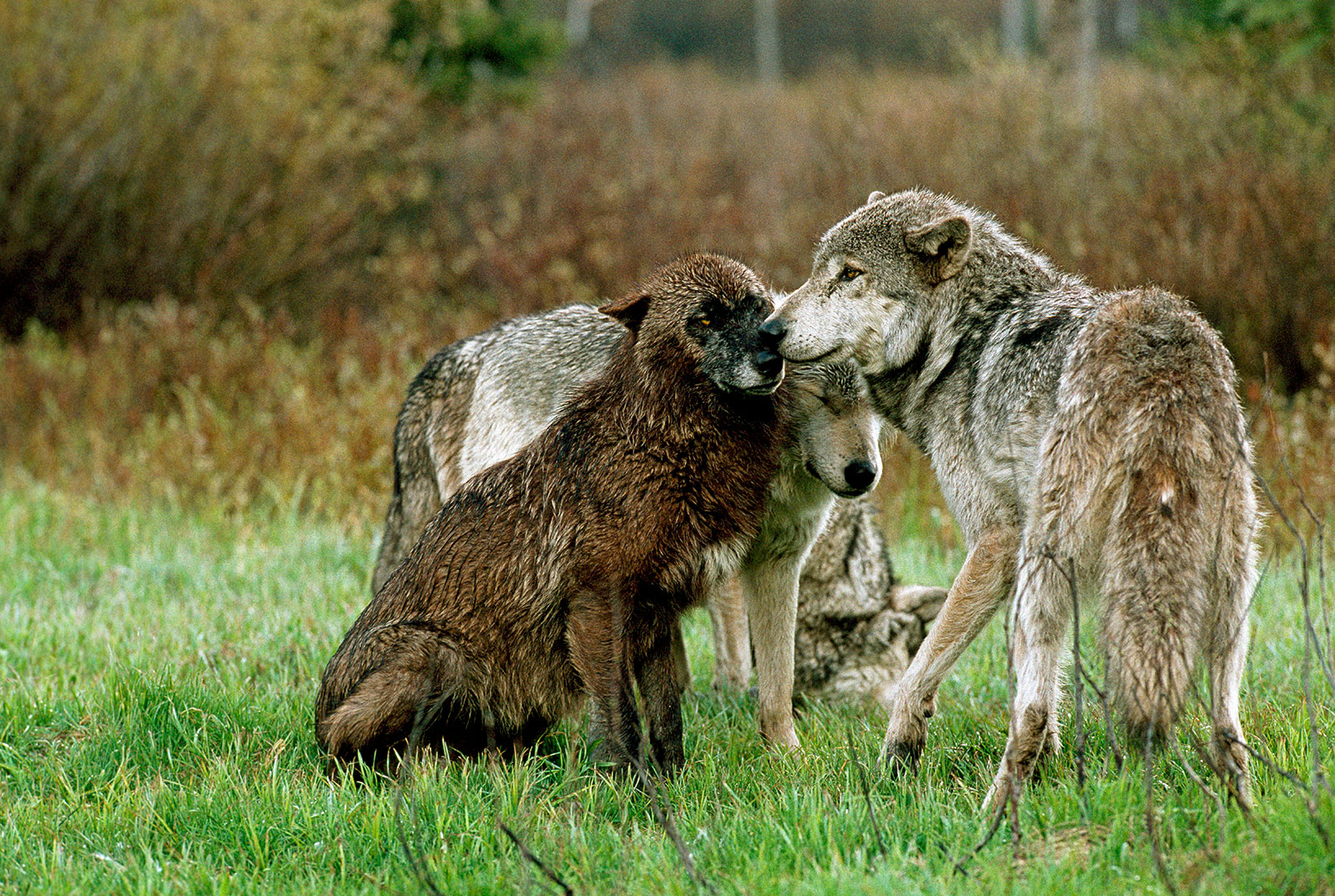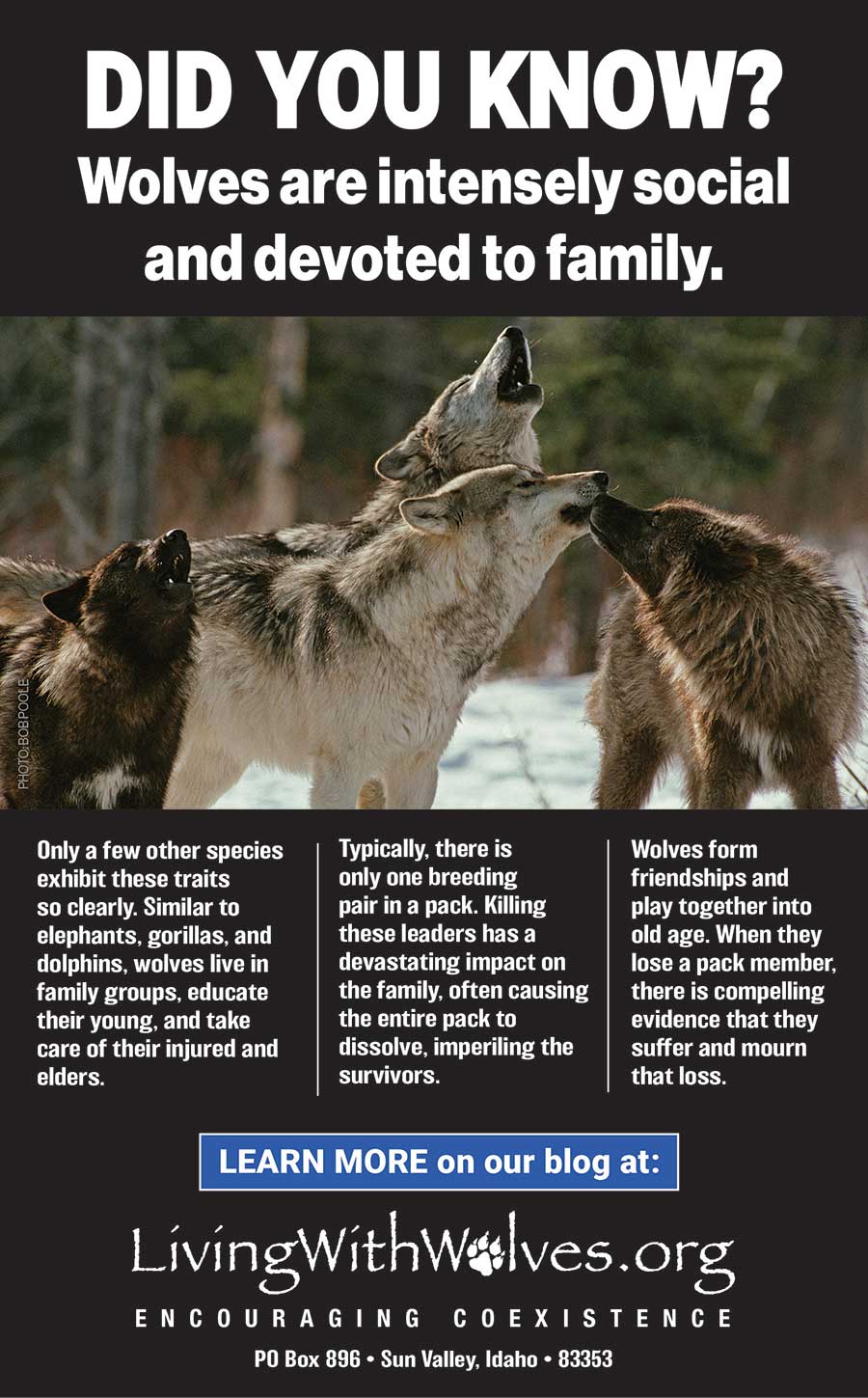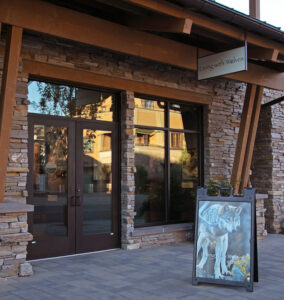A wolf pack is an exceedingly complex social unit—an extended family of parents, offspring, siblings, aunts, uncles, and sometimes dispersers from other packs. There are old wolves that need to be cared for, pups that need to be educated, and young adults that are beginning to assert themselves – all altering the dynamics of the pack.
The job of maintaining order and cohesion falls largely to the alphas, also known as the breeding pair. Typically, there is only one breeding pair in a pack. The loss of a parent can have a devastating impact on social group cohesion. In small packs, human-caused mortality of the alpha female and/or the alpha male can cause the entire pack to dissolve.
The Family Bond
Living in a pack as a family not only facilitates the raising and feeding of pups, coordinated and collaborative hunting, and the defense of territory, it also allows for the formation of many unique emotional bonds between pack members, the foundation for cooperative living.
Wolves care for each other as individuals. They form friendships and nurture their own sick and injured. Pack structure enables communication, the education of the young and the transfer of knowledge across generations. Wolves and other highly social animals have and pass on what can be best described as culture. A family group canpersist for several generations, even decades, carrying knowledge and information through the years, from generation to generation.
Wolves play together into old age, they raise their young as a group, and they care for injured companions. When they lose a pack mate, there is clear evidence that they suffer and mourn that loss. When we look at wolves, we are looking at extended families, each with its own homeland, history, knowledge, and indeed, culture.
We often hear the phrase “lone wolf,” an expression of grudging admiration. A lone wolf is often viewed as a rugged individualist, uncompromising and independent, driven to forge his own path, unfettered by the sentimental need for companionship. In reality, few people would ever want to live this way—and, as it turns out, few wolves would either.
Wolves, males and females alike, may go through periods alone, but they’re not interested in lives of solitude. A lone wolf is a wolf that is searching, and what it seeks is another wolf. Everything in a wolf’s nature tells it to belong to something greater than itself: a pack. They succeed by cooperating, and they struggle when they’re alone. Like us, wolves need one another.



